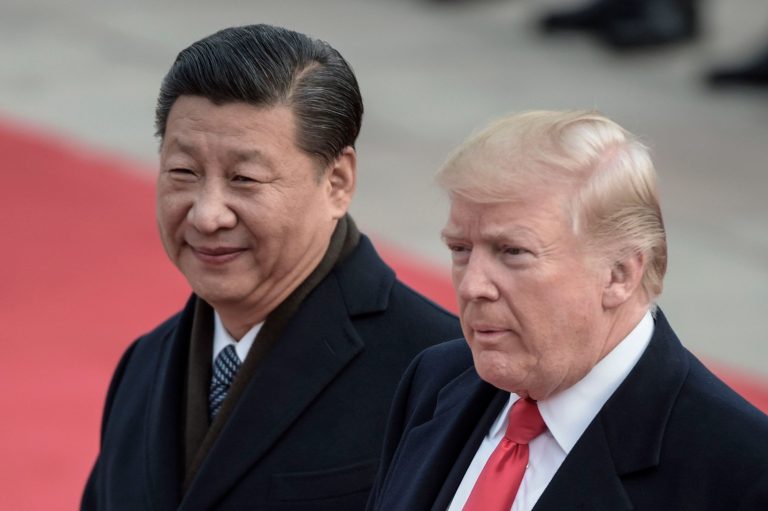Highlights
- Trump’s possible return to the presidency raises uncertainty in US-China ties.
- Biden and Xi held a two-hour meeting during the APEC talks in Lima.
- They discussed cybercrime, trade, Taiwan, North Korea, and Russia.
LIMA, Nov 16 (Reuters) – Chinese President Xi Jinping pledged on Saturday to collaborate with Donald Trump’s incoming administration as he concluded talks with outgoing U.S. President Joe Biden. The discussions addressed conflicts involving cybercrime, trade, Taiwan, the South China Sea, and Russia.
- Xi emphasized China’s commitment to a stable, healthy, and sustainable relationship with the U.S., despite challenges, and expressed readiness to engage with Trump’s administration to maintain communication, enhance cooperation, and manage differences.
- Biden and Xi met for two hours at Xi’s hotel in Lima, Peru, on the sidelines of the Asia-Pacific Economic Cooperation (APEC) forum, marking their first talks in seven months.
Biden acknowledged disagreements between the two leaders but highlighted the value of their candid discussions. He stressed the importance of maintaining direct communication between U.S. and Chinese leadership even after he left office, according to National Security Adviser Jake Sullivan.
- Trump’s proposed policies, including a 60% tariff on Chinese goods and the appointment of hawkish officials like Senator Marco Rubio as Secretary of State and Representative Mike Waltz as National Security Adviser, raised concerns in Beijing.
- Biden aimed to ease tensions with China but made limited progress on major issues during the meeting.
The leaders agreed that human decision-making, not artificial intelligence, should govern nuclear weapon use, marking a significant step in their discussions, according to the White House.
- Biden and Xi also addressed concerns about North Korea’s growing alignment with Russia, including its troop deployments in Ukraine. Biden urged Xi to leverage China’s influence to prevent further escalation or expansion of the conflict.
- Sullivan underscored China’s stated position opposing escalation in Ukraine and emphasized the inconsistency of North Korea’s involvement with that stance.
The meeting reflected ongoing efforts to manage the complex and evolving U.S.-China relationship amid significant geopolitical shifts.
MAJOR ISSUES
Major Issues Raised at Biden-Xi Meeting in Lima
- Biden directly confronted Xi about a recent China-linked cyberattack targeting U.S. government and presidential campaign officials.
- Biden condemned Beijing’s intensified military pressure on Taiwan and in the South China Sea, emphasizing the destabilizing impact on regional peace.
- Biden demanded the release of Americans he considers wrongly detained in China.
Taiwan and Regional Tensions
- Biden urged Xi to halt China’s provocative military activities around Taiwan, calling them destabilizing.
- Xi countered by blaming Taiwan’s President Lai Ching-te for promoting separatism, claiming such actions undermine peace.
- Xi also warned against Lai’s planned stopovers in Hawaii and Guam, which Beijing views as highly provocative.
- At the summit, Taiwan’s former Economy Minister Lin Hsin-i invited Biden to visit Taiwan, further highlighting U.S.-Taiwan ties.
Trade and Economic Measures
- Biden defended U.S. trade restrictions, including limits on investments in Chinese technology sectors like artificial intelligence and semiconductors, citing national security concerns.
- Xi criticized these measures and denied any evidence of Chinese involvement in cyberattacks, as reported by Chinese state media.
South China Sea Dispute
- Xi demanded the U.S. avoid involvement in disputes over the Spratly Islands, a contested region between China and the Philippines.
- Biden reaffirmed U.S. support for the Philippines and referenced the 2016 Hague ruling, which invalidated China’s maritime claims.
Reflections on U.S.-China Relations
- Xi warned against framing the U.S.-China relationship as adversarial, advocating for cooperation to advance mutual interests.
- Biden and Xi reflected privately on their long-standing dynamic, maintaining a candid tone throughout their discussions, according to U.S. National Security Adviser Jake Sullivan.
China’s Latin America Push
- Xi leveraged his attendance at the APEC summit to strengthen ties in Latin America, announcing plans for a free-trade agreement with Peru and inaugurating the Chancay deep-water port.
- Xi’s week-long diplomatic mission will also include a state visit to Brazil, signaling China’s growing influence in the region.
- U.S. officials expressed concern that China might seek military or intelligence footholds near the U.S., which Beijing dismissed as baseless accusations.
Looking Ahead
- Pacific Rim leaders are closely monitoring the impact of Trump’s impending presidency on global relations.
- China announced plans to host the 2026 APEC summit, reinforcing its commitment to global economic leadership.

